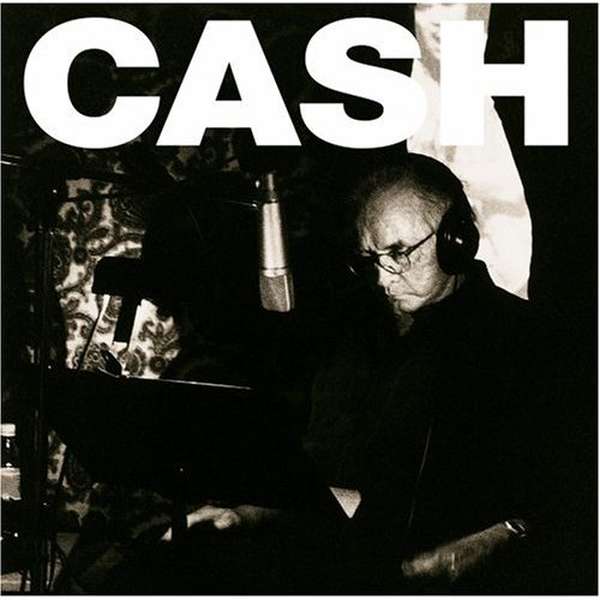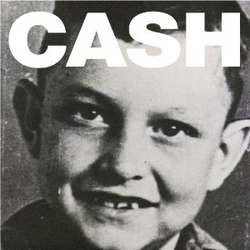Johnny Cash might as well be an American institution. Many revere him and his recent death following the passing of his beloved wife, June Carter, was marked by much hoopla and circumstance. It was a shame, but by no means a shock. The triumphant and bleak sounding record, American IV: When the Man Comes Around, was a disturbing and wonderful album with which to end a long and storied career. Not only had Rick Rubin brought Johnny Cash back to music relevancy but also to commercial success that had long eluded the music legend.
According to the liner notes by Rubin, they started working on American V the day American IV was finished. Perhaps Johnny wanted to leave a more positive sounding last testament to his listeners. Perhaps, once June passed, he needed something positive to work on to occupy his mind. Either way, these are the recordings that Cash was working on at the time of his death.
American V: A Hundred Highways is a more resolved and less dreary themed record than American IV: When the Man Comes Around. However, Cash sounds tired and haggard on this album. During the progression the strength seems to come and go throughout the course of the record. With an even greater feeling of the leering figure of death hanging over him, Cash filled much of this effort with religious themes and stories of impending mortality. There are some brilliant songs here. "Help Me" is the first song, and, with the inclusion of the strings to accompany Cash and his guitar, it creates the effect of a solemn hymn. It definitely tugs at the heartstrings. "God's Gonna Cut You Down" is a great song, easily my favorite on the record. The stomping cadence and the guitar arrangement drives home the image of Cash as some stern lawman laying down a final warning to some sort of criminal element. It is excellent.
"Like the 309" was the last song written by Cash in his career. This is one of the songs that the tiredness shows in his voice. The lyrics are pretty good, and it is a rather catchy sounding ditty. Cash's version of the Bruce Springsteen song, "Further on up the Road" is damn good. I believe that it holds up well to the original and also gives it a color and mood different than that of Springsteen's version. "On the Evening Train" sounds like an ode to June's passing and his plan for what would be his short life following her death. It's eerie but comforting at the exact same time. "Four Winds" sounds like he is saying goodbye, but not in a depressing way. It sounds upbeat and reflective. "I'm Free of the Chain Gang Now" does not hold quite the closing impact on American V: A Hundred Highways as "We'll Meet Again" has on American IV: When the Man Comes Around, but it works. It ends the album on an upper rather than a downer.
At first listen, I considered this sub par from the quality that I had come to expect in Johnny Cash's work with Rick Rubin. But after a few listens, it become a record that felt strangely comforting and apros pos for what it is. I think that American V: A Hundred Highways loses some of its meaning and urgency when one knows that American VI is on the way. (If it has the themes of life after death and speaking from beyond the grave, I will quit listening to music. I pray that Rick Rubin does not pull a Tupac on us all with Johnny Cash.) Other than that, Rubin deserves credit for pulling this project together following John's passing. He assembled fitting musical arrangements around the skeletons that were left behind. All in all, Johnny Cash fans will not be disappointed. Good stuff although it falls short of the impact of his last record. Johnny Cash left us with at least one more good album in American V: A Hundred Highways.

